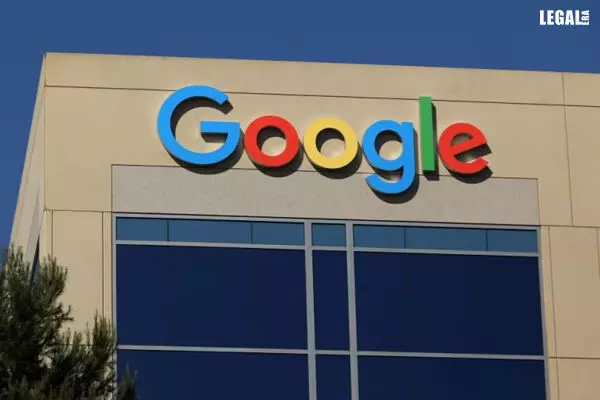- Home
- News
- Articles+
- Aerospace
- AI
- Agriculture
- Alternate Dispute Resolution
- Arbitration & Mediation
- Banking and Finance
- Bankruptcy
- Book Review
- Bribery & Corruption
- Commercial Litigation
- Competition Law
- Conference Reports
- Consumer Products
- Contract
- Corporate Governance
- Corporate Law
- Covid-19
- Cryptocurrency
- Cybersecurity
- Data Protection
- Defence
- Digital Economy
- E-commerce
- Employment Law
- Energy and Natural Resources
- Entertainment and Sports Law
- Environmental Law
- ESG
- FDI
- Food and Beverage
- Gaming
- Health Care
- IBC Diaries
- In Focus
- Inclusion & Diversity
- Insurance Law
- Intellectual Property
- International Law
- IP & Tech Era
- Know the Law
- Labour Laws
- Law & Policy and Regulation
- Litigation
- Litigation Funding
- Manufacturing
- Mergers & Acquisitions
- NFTs
- Privacy
- Private Equity
- Project Finance
- Real Estate
- Risk and Compliance
- Student Corner
- Take On Board
- Tax
- Technology Media and Telecom
- Tributes
- Viewpoint
- Zoom In
- Law Firms
- In-House
- Rankings
- E-Magazine
- Legal Era TV
- Events
- News
- Articles
- Aerospace
- AI
- Agriculture
- Alternate Dispute Resolution
- Arbitration & Mediation
- Banking and Finance
- Bankruptcy
- Book Review
- Bribery & Corruption
- Commercial Litigation
- Competition Law
- Conference Reports
- Consumer Products
- Contract
- Corporate Governance
- Corporate Law
- Covid-19
- Cryptocurrency
- Cybersecurity
- Data Protection
- Defence
- Digital Economy
- E-commerce
- Employment Law
- Energy and Natural Resources
- Entertainment and Sports Law
- Environmental Law
- ESG
- FDI
- Food and Beverage
- Gaming
- Health Care
- IBC Diaries
- In Focus
- Inclusion & Diversity
- Insurance Law
- Intellectual Property
- International Law
- IP & Tech Era
- Know the Law
- Labour Laws
- Law & Policy and Regulation
- Litigation
- Litigation Funding
- Manufacturing
- Mergers & Acquisitions
- NFTs
- Privacy
- Private Equity
- Project Finance
- Real Estate
- Risk and Compliance
- Student Corner
- Take On Board
- Tax
- Technology Media and Telecom
- Tributes
- Viewpoint
- Zoom In
- Law Firms
- In-House
- Rankings
- E-Magazine
- Legal Era TV
- Events
Delhi High Court Fines Google ₹1 Lakh for Patent Application

Delhi High Court Fines Google ₹1 Lakh for Patent Application Misrepresentation
On Tuesday, the Delhi High Court dismissed Google’s appeal and imposed a fine of ₹1 lakh. The tech giant was found to have misrepresented facts and failed to disclose crucial information related to the refusal of its patent application by the European Patent Office (EPO).
The case revolved around Google’s application titled “Managing Instant Messaging Sessions on multiple devices.” Despite claiming that the application was abandoned before the EPO, the High Court discovered that the corresponding EU parent application had not one but two rejections—both citing a lack of inventive steps.
Justice Prathiba M Singh emphasised that Google not only presented incorrect facts but also withheld details about the rejection of the EU parent application and its divisional counterpart. Consequently, the court held Google accountable for its actions.
Previously rejected by the Assistant Controller of Patent and Design, Google’s application faced scrutiny for its alleged lack of inventive steps. The company appealed the decision before the Intellectual Property Appellate Board (IPAB). The case was eventually transferred to the High Court following the abolition of the IPAВ.
Taking into account the argument that the EPO application was abandoned, along with the fact that the corresponding EU application for the subject patent consisted of not one but two applications (including a divisional application), both of which were rejected due to a lack of inventive step, the present appeal may also incur costs, Justice Singh stated.
The High Court dismissed the appeal and concluded that the Controller was correct in asserting that the proposed step outlined in the subject patent application lacked inventive merit and was evident to a skilled individual in the relevant field.
In its final ruling, the High Court concurred with the Controller’s assessment, affirming that the proposed step in Google’s patent application lacked inventiveness and was evident to a skilled practitioner in the field.



